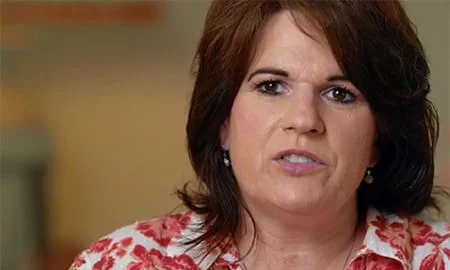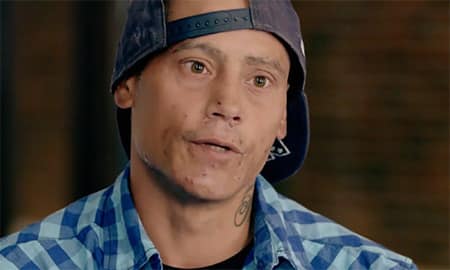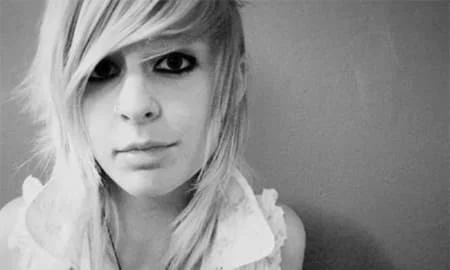A recent PBS documentary shows the realities of heroin addiction, portraying the real-life stories of people’s personal encounters with the deadly drug.
Statistics onheroin abuse and addictionhelp provide one perspective on the growing, serious opioid epidemic. However, looking at heroin’s impact through data and numbers can sometimes dehumanize the critical struggles faced by real people.
PBS recently aired an in-depthFrontline documentarythat sheds light on a handful of people by sharing their personal heroin stories. Throughout the documentary, these stories are interwoven with a broader view of drug policy and the approaches being taken at national and local levels. Three stories stood out in the two-hour documentary: those of a suburban housewife, a young father and a suburban high-school athlete. Their stories are unique and sobering.
A Mother’s Bouts with Pain, Prescription Medication and Heroin
Cari’s story of heroin addiction might be different from what you’d expect. Cari is a stay-at-home mother who became dependent on prescription pain medication. Following the birth of her second child, Cari was prescribed Vicodin for pain. Cari’s craving for Vicodin continued after her prescription ran out, and she needed more.
To get it, she would visit her doctor and fabricate a reason why she needed the painkiller. When her latest prescription ran out, she’d create another reason why she needed more. The ruse worked, and it worked well. From one doctor alone, Cari was holding prescriptions that could be filled for hundreds of pills each month, and her doctor wasn’t the only one being fooled. To the outside world, she seemed to carry out a normal, suburban lifestyle. Her daughter noted that she was a mom that “everybody looked up to and wanted to be.” In reality, she was self-medicating with up to twenty painkillers every day.
This Season, Give Yourself the Gift of a Fresh Start.
Whether you are struggling with addiction, mental health or both, our expert team is here to guide you every step of the way. Don’t wait— reach out today to take the first step toward taking control of your life.

The pills made Cari feel like an improved version of herself, and she believed the medication made her better in almost every way. She lived this way for two years until one day, she went to get a refill from her doctor and received a dose of reality instead. Unbeknown to Cari, her husband had spoken to her doctor about her painkiller abuse. The doctor let her know he would no longer fill her prescriptions, and he even said she should have been smart enough not to abuse the medication she was given. It was a turning point, and she promised to stop. Unfortunately, it was far easier said than done; the addiction continued.
Cari’s behavior changed. Instead of solely relying on doctor’s prescriptions, Cari started finding her fix wherever she could. She would rummage through her friends’ and family members’ medicine cabinets looking for more. She would call to make refill requests on prescriptions and say she was merely picking them up for someone else. Eventually, her supply ran out. A pharmacy called the issuing doctor of a prescription, only to find that the refill was not authorized. Cari avoided prosecution but did have a run-in with the law, which led to an agreement to attend inpatient rehab.
Although Cari’s time in rehab was determined to be a success, her struggles with addiction continued. A decade after becoming addicted to opioids, she moved out of her home, leaving her husband and two children behind. Her addiction progressed. Transitioning from prescription opioids to street drugs, she dabbled in crystal meth and then returned to opioids in the form of heroin. It wasn’t long until Cari was living in a drug house with over a dozen other addicted people. Living conditions were poor. The home served one purpose to its residents: drug use.
Cari’s downward spiral had landed her in a dangerous place of full-blown addiction. “I lost it all, and it really didn’t matter to me. As long as I could get high, it was OK,” she explained. To pay for heroin, she began selling drugs in high volume. However, it wasn’t going unnoticed by the local narcotics authorities. When Cari sold drugs to a narcotics officer, her most serious legal wrangling began. To avoid jail time, she opted into a methadone program and attended programs to help keep her off heroin, opioids and any other drug. Cari still struggles with addiction today, but she is lucky to be alive. Paths like hers often end with a much more tragic event.
Reclaiming Fatherhood and Life from Heroin’s Grip
Johnny’s story is similar to the stories of Cari and countless others who fall victim to drug addiction. When he was in his 20’s, Johnny’s future looked bright. He had more than a decade-old run with success leading up to 2012. He exuded positivity and matched it with a work ethic and outlook that made continued success look all but impossible. Johnny had struggled with drugs in the past, but he had been sober for seven years. He was in a healthy relationship with his now ex-wife, had completed college and was known as a top music producer in the area.
Just when it seemed life couldn’t get any better, he had a late relapse with drugs. This time, the drugs were much more dangerous than before. Heroin became a full-blown addiction, and Johnny knows what it’s caused him to lose — he’s had no contact with his son or daughter since just before 2013. Ever since, he often finds himself thinking about the simple things. He thinks about how his daughter’s hair smelled when he was with her. He wonders what they’re doing in school, or what kinds of clothes they wear. The dire nature of heroin addiction is evident whenever Johnny speaks of it. He wants to see and spend time with his children. He wants to have a productive job in a career he’s passionate about. He desperately wants his life back, but heroin overrides all of that. When a person uses heroin, it doesn’t take long before their mind’s sole focus is to use more and more of it.

Johnny’s doctor recommended suboxone to treat his specific addiction. So far, it’s working. Suboxone blocks the effects of heroin, effectively making it an empty experience. After three months of sobriety, Johnny has been able to get a room of his own at an aftercare facility — a big step. He’s in the process of getting his life back, and for now, he takes things day by day and focuses on what he loves: music and his children. Johnny knows he’s just starting the journey, but his determination to be with his kids makes it a journey he’s willing to see through to the end.
A Tragic Story of a Middle-American Teen’s Heroin Addiction
Of all the heroin stories in the PBS special, Marah’s is perhaps the most heartbreaking. Marah’s parents shared memories of how she was before addiction took hold: “Marah was a born athlete. Everyone knew who she was.” Marah took piano and ballet lessons, but she truly excelled in sports. By the time she reached her teenage years, she was pitching at over 60 miles per hour. Her childhood seemed good by any account — her mother worked at the local television station, and her father stayed at home with the kids. The Williams family attended good schools and lived in a safe suburban neighborhood.
Marah’s struggles began with bouts of depression, anxiety, ADHD and an eating disorder. As the family searched for the right therapy to help her, they learned that she had taken matters into her own hands by self-medicating with substances. One night before Christmas, she snuck out of her house to drink alcohol and stay the night at a boy’s home. At this point, she was in the early stages of experimenting with both alcohol and marijuana. Her parents kept a watchful eye on her and did what many parents would do — light searches of her bedroom, looking for any clues that alerted them to destructive behavior. On one such search, her mother came across a piece of jewelry — a locket. Inside, she found cocaine.

Marah’s parents weren’t without the means to help their child. They found a treatment program that sounded good and opted for a longer-than-average stay of three months. It cost tens of thousands of dollars to send her to the intensiveinpatient rehab program. After completing her stay in the program, things were looking up. Marah’s mother recalls that Marah seemed happy and appeared to be healthy again. They believed she was still sober, but unfortunately, the treatment program hadn’t been effective. Marah was now taking OxyContin. Her family found out when she was caught stealing it, and then her father got a phone call from another parent from Marah’s school. They told him that Marah and their daughter had been caught using heroin in a bathroom.
Marah wasn’t opposed to getting help. She knew she was in trouble and asked to go into treatment. After a month of rehab, she returned home. She worked hard this time, focusing on her studies and on staying sober. Despite her efforts, she relapsed. She confided to her parents that she had used heroin once more but wasn’t going to do it again. Her parents tried to help, but a few months later, it was too late. Marah relapsed again and suffered a fatal overdose, bringing her life to an abrupt end.
The people in these stories each lived a seemingly happy, healthy life full of promise, yet they still fell into a path of serious addiction. These personal stories remind us that anyone can fall victim to addiction, and while the journey toward recovery can be difficult, it is possible to heal.
If you or someone you care for isstruggling with addiction to heroinor any other substance, we urge you to get help — it can quite literally save your life. Our representatives at The Recovery Village are available around the clock to help you take that vital first step toward recovery. Contact us today to learn about addiction treatment programs and get the help you need.








